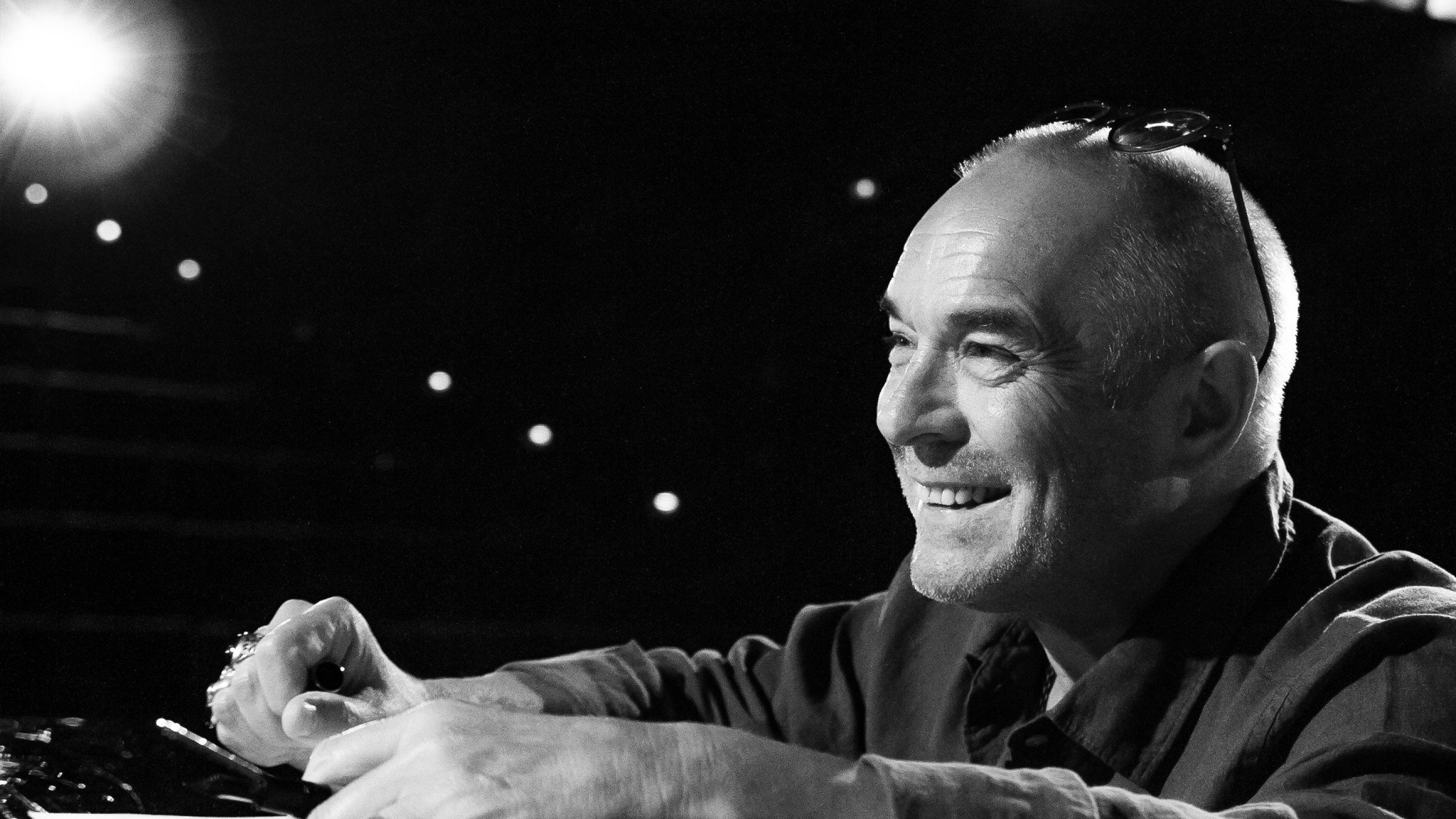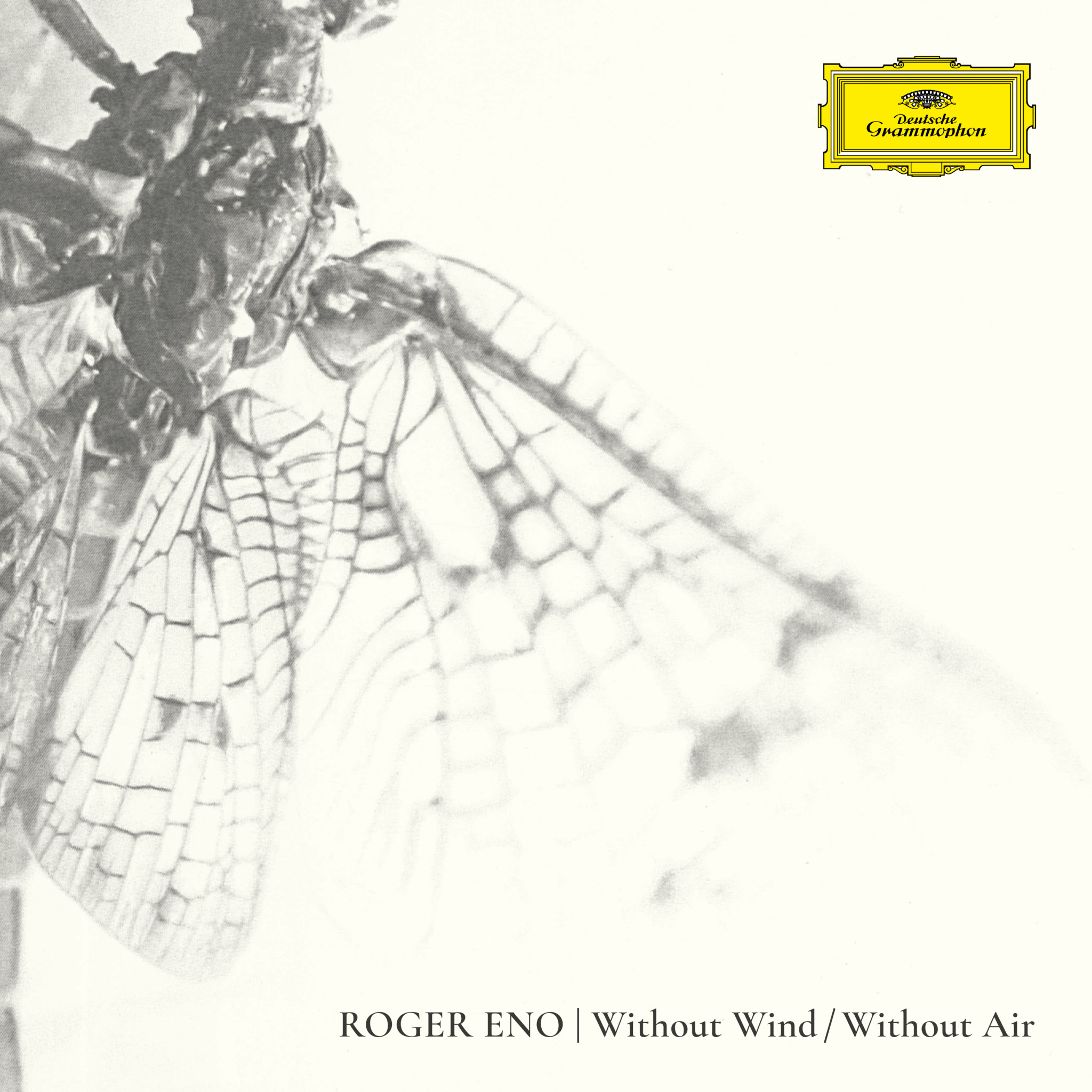By Paul Sullivan
“I had two directions I could go in,” explains Roger Eno. “One was to keep exploring, and the other was to keep polishing what I have been doing. I felt that I had polished enough—and to be completely frank, a lot of people are doing now what I was doing years ago, that is writing music that is sparse, melodic and, without wishing to diss myself too much, not particularly challenging. I recently saw a video of a fey young man walking dreamily through a forest in slow motion and thought: ‘how much fucking more of this do we need?’ [laughs] It feels like a lot of it has become music for healing and shit like that, so I wanted to draw a line under that sort of stuff. And I was also raging a bit at what the world has become…”
Eno, who turned 66 this year, has an impressive amount of energy and charisma. As we chat away on Zoom, his forthright opinions and impressive musical knowledge—he’s been at this for decades after all, with TV and film scores, a slew of notable solo albums and collaborations with his brother Brian and Daniel Lanois, among others, under his belt, and is well-known for his emotive, minimalist compositions—are punctuated with regular chuckles. His home is in Suffolk, close to where he and Brian grew up, and his friendly dog, Ted, occasionally hops onto his lap to join us.
Reflecting his current outlook, his new album Without Wind Without Air is one of his boldest and most expansive yet. Recorded in Berlin, with DG’s very own Christian Badzura on production duties, it leaves behind much of the reflective quietude of his previous two DG records—The Turning Year (2022) and The Skies, They Shift Like Chords (2023)—to embrace a more undulating vision that spans folk and baroque and isn’t afraid to introduce unsettling moods alongside more introspective and optimistic pieces.
It’s more collaborative and instrumentally diverse than usual too, featuring clarinet, guitar, bass, strings, synths, percussion and electronics, as well as vocal appearances from soprano Grace Davidson, Roger’s daughters Cecily and Lotti, and even Roger himself for the first time. With Jonathan Stockhammer conducting Scoring Berlin on three tracks, and Badzura arranging, playing and co-composing a couple of tracks, the end result is a flowing, cinematic experience that’s very far from what one might describe as ‘ambient’.
“Christian is a great producer,” enthuses Roger. “He knows exactly what he’s doing and has access to this wonderful pool of musicians in Berlin that we could work with. The first thing he did when I arrived was go to a supermarket to buy a crate of beer and then we got straight into it. There was an attitude of ‘let’s give this a go’, which was a wonderfully collaborative approach. There was a fabulous clarinet player called Alex Glücksmann and a bassist called Tobias Fleischmann, among others, all incredibly well-trained and proficient musicians with classical backgrounds. The best thing though, was that we allowed them to improvise, which some of them had never done before, and they really took to it. To have that energy and exuberance was a joy to watch and really added to the record.”
First single “Forgiveness” creates a suitably dramatic opening to the album, with Davidson’s vocals floating angelically above percussion, strings and clarinet that build into ominous, even discordant swirls embellished with additional vocals from his daughters; it concludes on a bruised and brooding note. “That song was inspired by a Black Christian family whose son was murdered,” explains Roger. “They appeared on live TV shortly afterwards to say that they forgive the murderer, which struck me as so powerful and extraordinary. In some American states you can go and watch your murderer being executed, which is supposedly a way to settle the matter—but how incredibly different is it to forgive instead? It raised these philosophical questions for me about the intense love you feel for your offspring, and how you might feel if the unthinkable were to happen. It’s a musical picture of the profound anguish of that process.”
The album moves through the subtle and evocative “Mist”, which equally refuses to settle; the haunting, piano-led “Tapestry”; and the beautifully folksy ballads “There is a Ship”—which Roger hopes is “taken up by folk singers and becomes part of a common canon, owned by everyone”—and “The Moon and the Sea”, which he sings on to great effect. Then there’s “Alembic Distillation”, one of his favourites. “It’s basically a musical problem that I wanted to fix, which is how Bach really gets on my tits. His work is so busy and dense all the time, and you always know where it’s gonna end. But at the same time I love baroque music, and composers such as [Jean-Baptiste] Lully, [François] Couperin and [Alessandro] Scarlatti, who are also often busy but without that kind of off-putting sincerity that Bach has. So my aim was to retain the beauty while stripping away the excess, much like the distilling process that alchemists used to use—to get to the essence of a certain approach to baroque.”
More somber moments appear on the apocalyptic hum of “The Final Year Of Blossom,” which is about the ongoing fragility of our natural world, conjuring up the notion that Japan’s famous cherry blossoms may one day cease; while the somber, lachrymose “Murder of the Innocents Part 1”, which was written on the date of the Feast of the Innocents (29th December, 2024), when King Herod ordered the slaughter of all male children aged two and under in Bethlehem and its vicinity.
“Normally I don’t bring politics into my music,” muses Roger. “I don’t think it’s what music does best, overall, and I wouldn’t call this a political album at all. But this time around, I also just could not let certain topics lie, such as the climate and the genocide in Gaza. I would more say that there’s some grumpy old fucker in this [laughs], but some lovely stuff too. I suppose if it’s anything it’s honest. I know it’s hard to state what honesty is in an abstract form like music, but I mean that it reflects what I feel at the moment and what should be done. And that means that if some of the music feels upsetting then it is absolutely intended to be.”
'Without Wind Without Air' is set for release 31 October, listen and order here.


